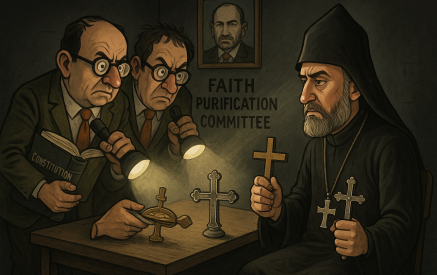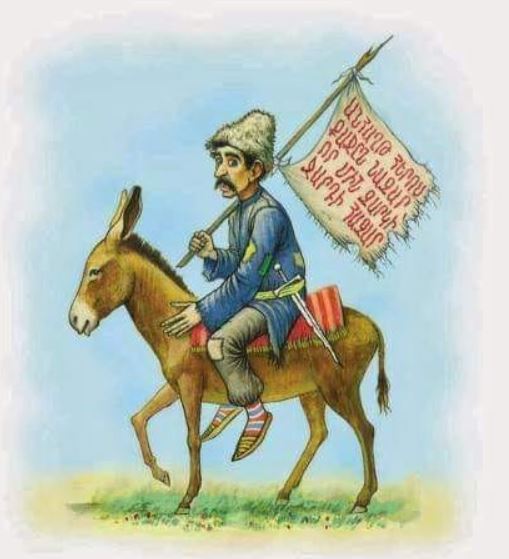The enlightenment period must begin in Armenia
What is enlightenment? Many have tried to answer this question, including the German philosopher Immanuel Kant in his 1784 publicist article, so to speak. According to him, enlightenment is marked by the emergence of a person as an adult. Moreover, people are in that state of their own free will; they are not children, but they simply do not dare to be guided by their own minds without the instructions of others or existing stereotypes. Sapere aude! “Have the courage to use your own mind,” is how Kant interprets the Latin saying, which he thinks is the motto of the Enlightenment.
Moreover, the Enlightenment, according to Kant, can only be gradual, evolutionary. “Through revolution,” he writes, “it is possible to end the dictatorship and oppression of the profiteers or the pro-government, but it is never possible to carry out a change of mentality. The new prejudices, like the old ones, will be a stepping stone for a foolish crowd.”
This German version of the Enlightenment, unlike the French, did not provoke the “stupid crowd” to take drastic action, and along with a passionate demand for complete freedom of thought, presupposed a certain civic discipline. The point of this approach is that if we do not use our brains, but take some ready-made “clichés” that are placed on the “shelves” imposed on us and formulated by others, then what is the difference between these stereotypes, revolutionary prejudices? Are they conservative, liberal, Nazi or communist? All the same, they are “clichés” that limit human independent thinking. Enlightenment, therefore, is a way out of stereotypes, a form of thinking that, according to Kant, can be nurtured, taught, and instilled in a person.
Read also
Totalitarian, tyrannical, and authoritarian systems are formed under the influence of many factors, but “ideologically” also because of non-independent thinking. At least that is what the 20th century American philosopher Hannah Arendt thought. Her most famous book, “Banality of Evil,” is dedicated to the fate of Nazi criminal Adolf Eichmann. According to Arendt, he deserved to be executed in 1961 in Israel. But the philosopher thinks that Eichmann was not a romantic villain at all; he was not a natural sadist. His problem was the primitive, flat, colorless thinking that made him a cruel machine screw. Or, to use Kant’s terminology, he lived with prejudices that served as a pawn in the crowd.
The mob, infected with Nazi ideology and cannibalism, is, of course, an extreme case. Nations usually live with more “everyday” prejudices, each with its own. But there are times in the history of any nation when, because of dramatic events, the majority of that nation finds itself in “darkness” and needs a period of Enlightenment. We also had those moments, and in those periods there were grateful people like Khachatur Abovyan, Mikael Nalbandyan, and Hovhannes Tumanyan, who did not idealize the people at all, engage in empty compliments (“our people are wise”), and loved things as they were. And they tried to lead people to the light, to get out of the swamp of comfortable myths.
It is clear that we do not have figures of that scale now. It can also be added that, in the conditions of statehood, however, it is desirable for the state to show that it needs such people. It is not a matter of material conditions, but of state interest. When Tamanyan, Spendiaryan, Sarajev, and Saryan came to the ruined Armenia, they definitely did not expect any comfort. But these people trusted the Prime Minister who invited them to their homeland, Alexander Myasnikyan, regardless of his political views. When the representatives of the current administration say to the intellectuals, “We have defeated you, we have degraded you, we have won,” this, of course, creates additional obstacles for the Enlightenment. But it is also wrong to be offended, to remain silent, or to run away as a result. On the contrary, in such conditions the enlightenment effort must be multiplied. Let’s call things by their names. We are facing a mental catastrophe, which is a serious threat to the state. The way to prevent this catastrophe is to motivate people to use their own minds.
… In another article, Kant states who, according to him, is a good citizen: He who owns himself – “sein eigener Herr.” In other words, he is the master of his head (and therefore his mind).
Aram Abrahamyan























































